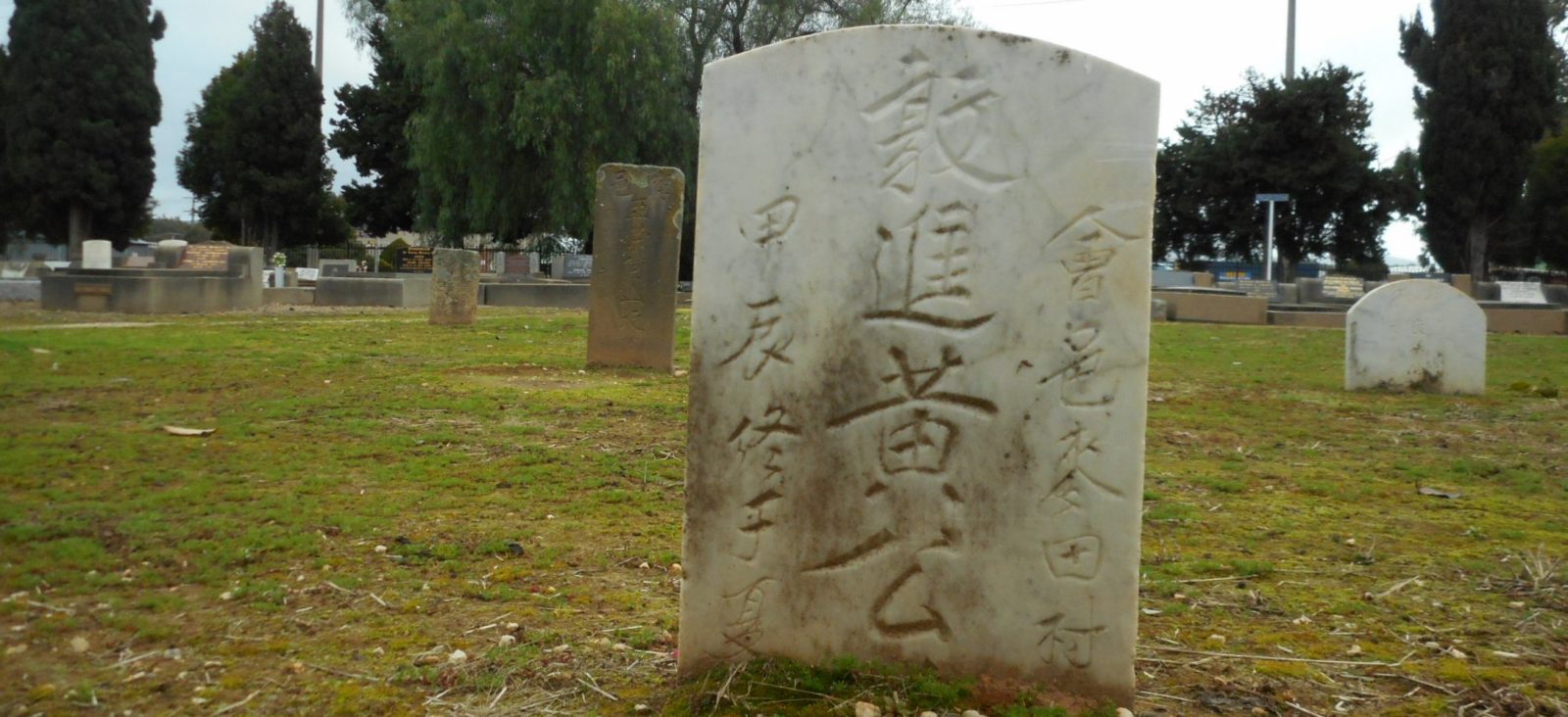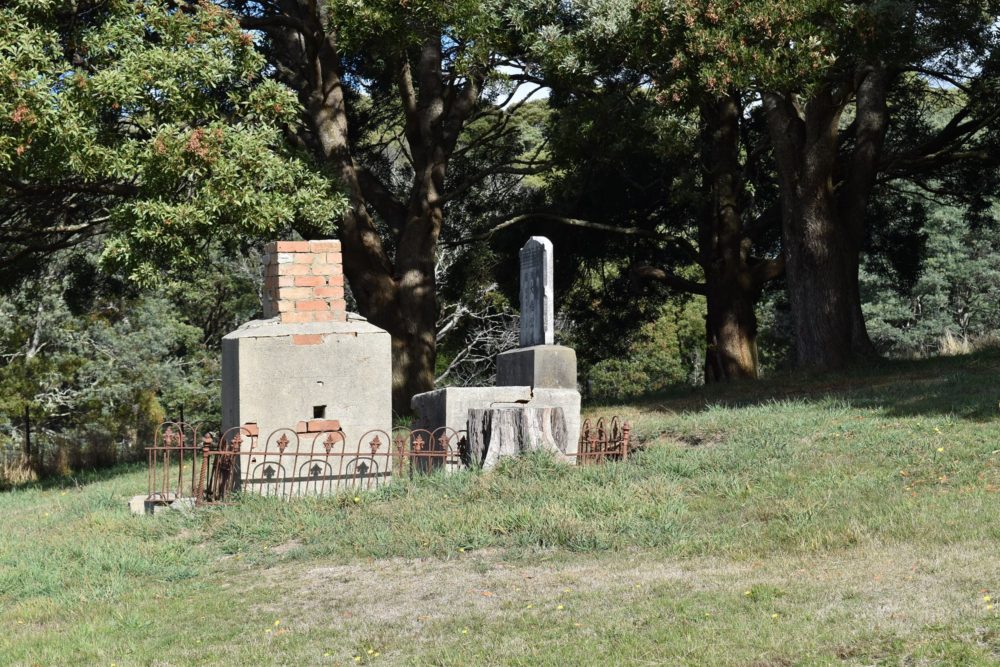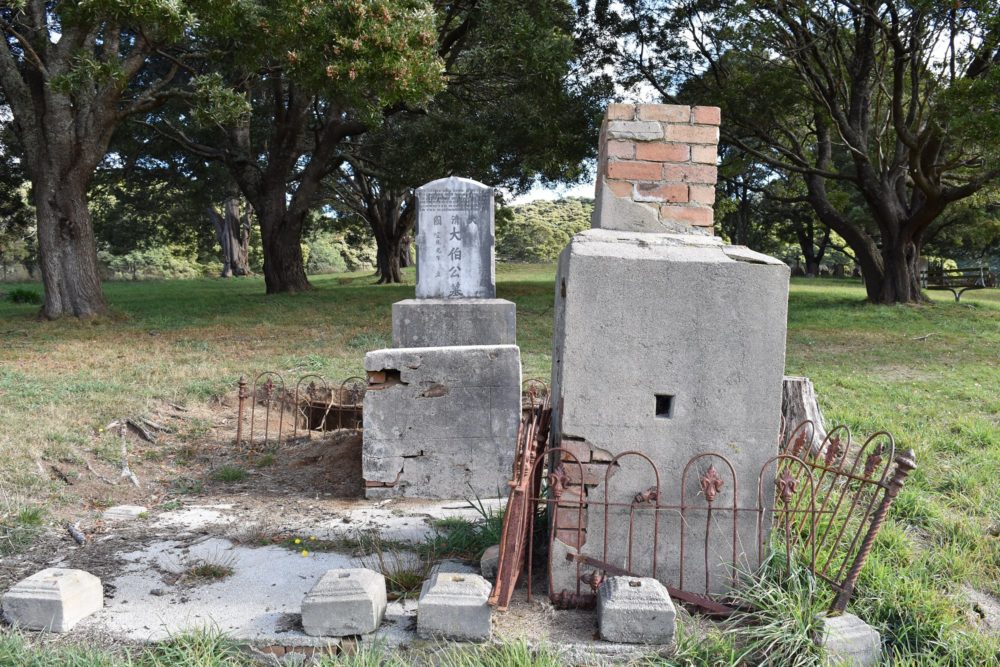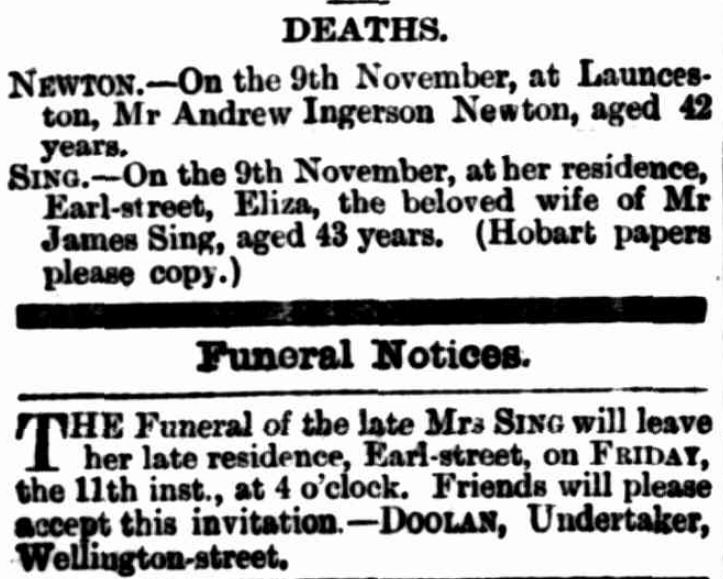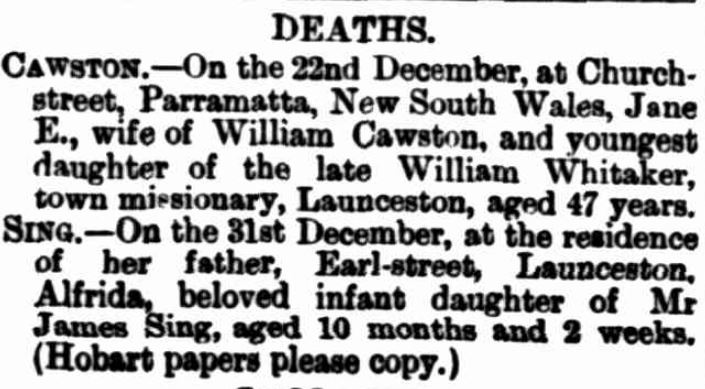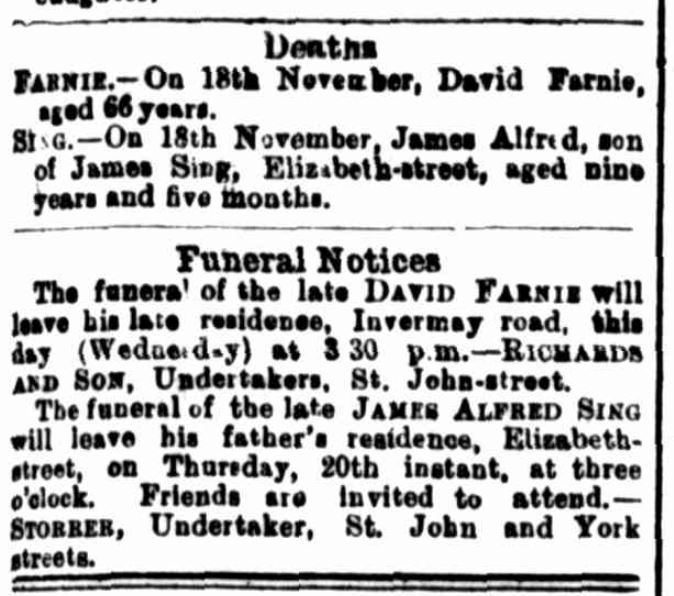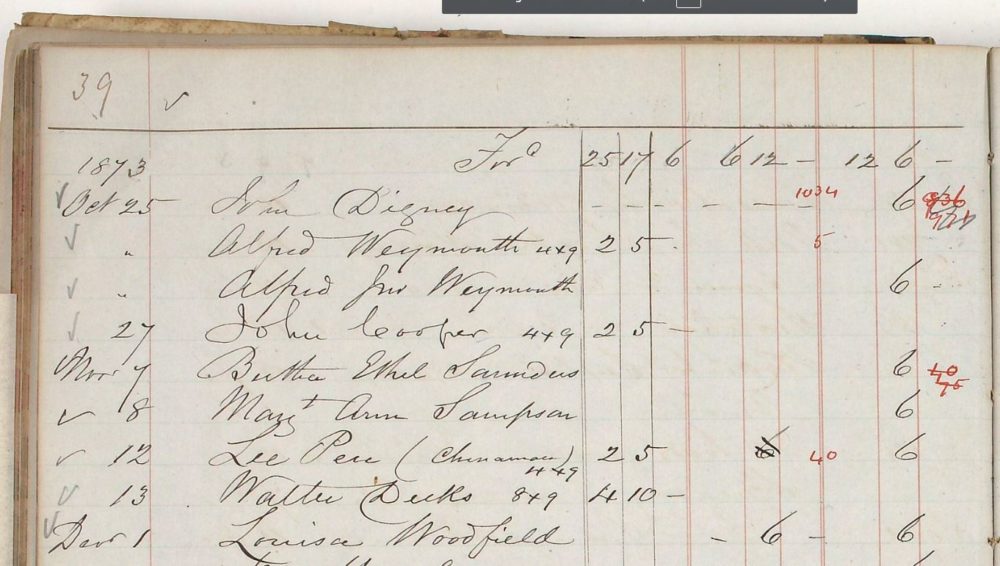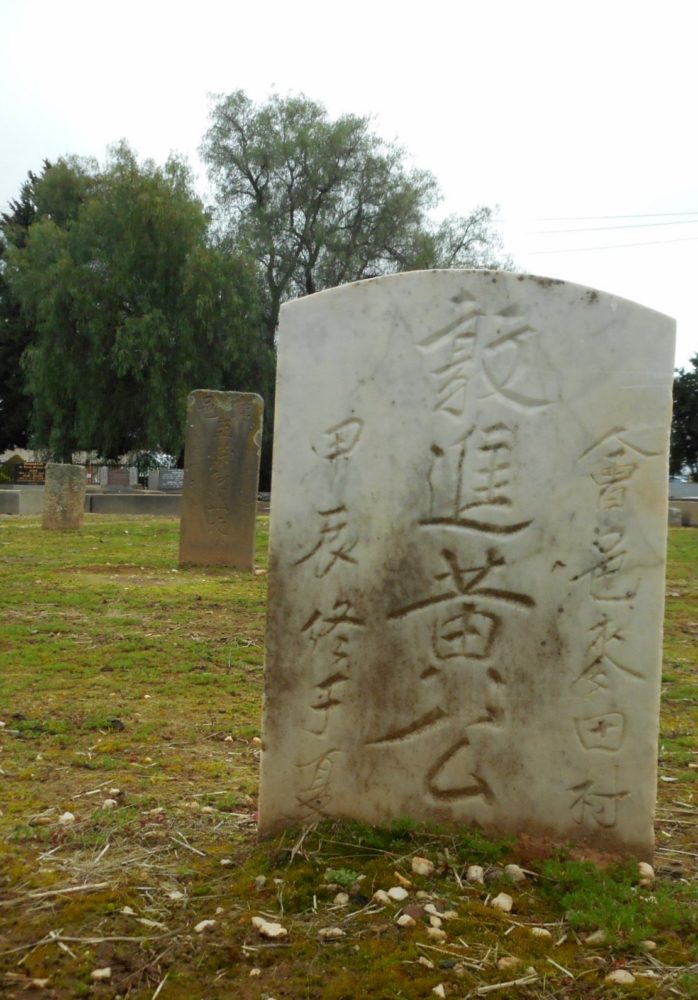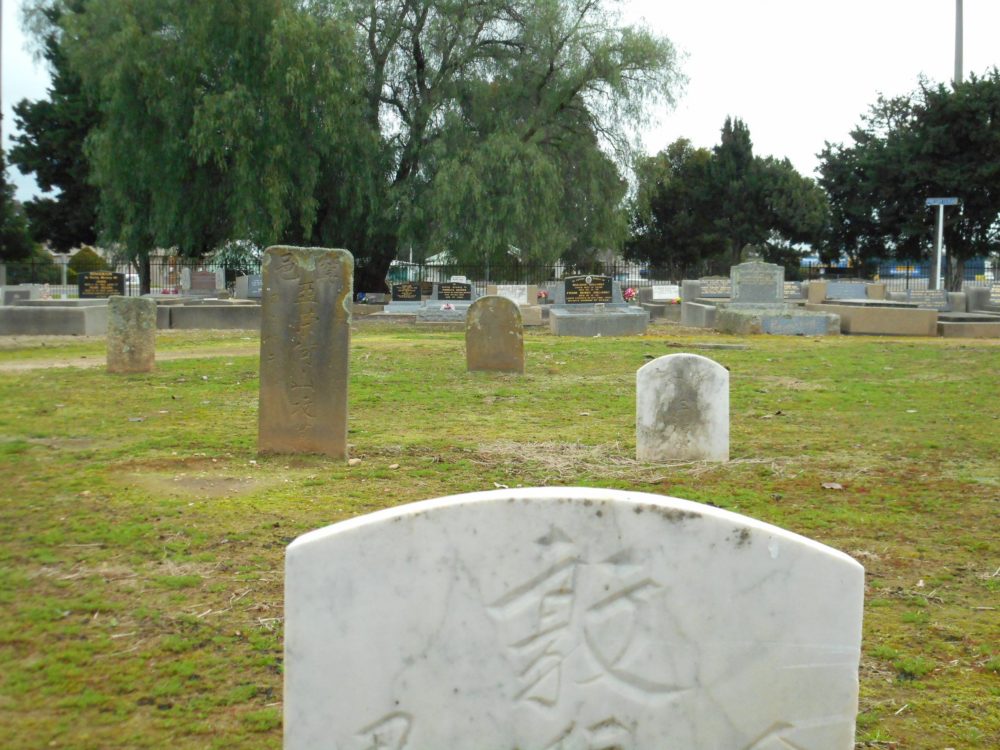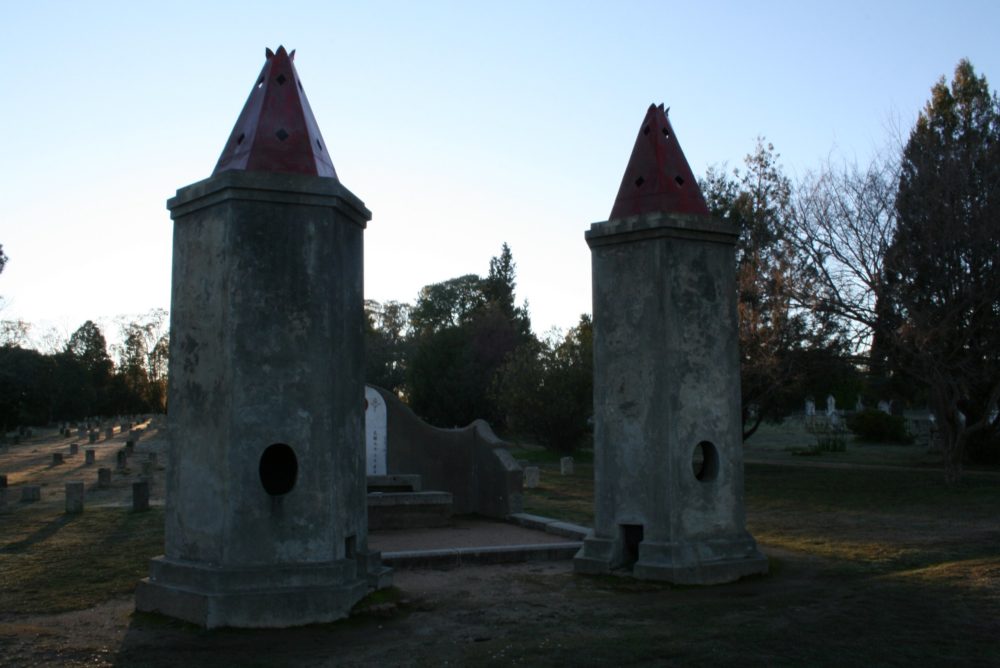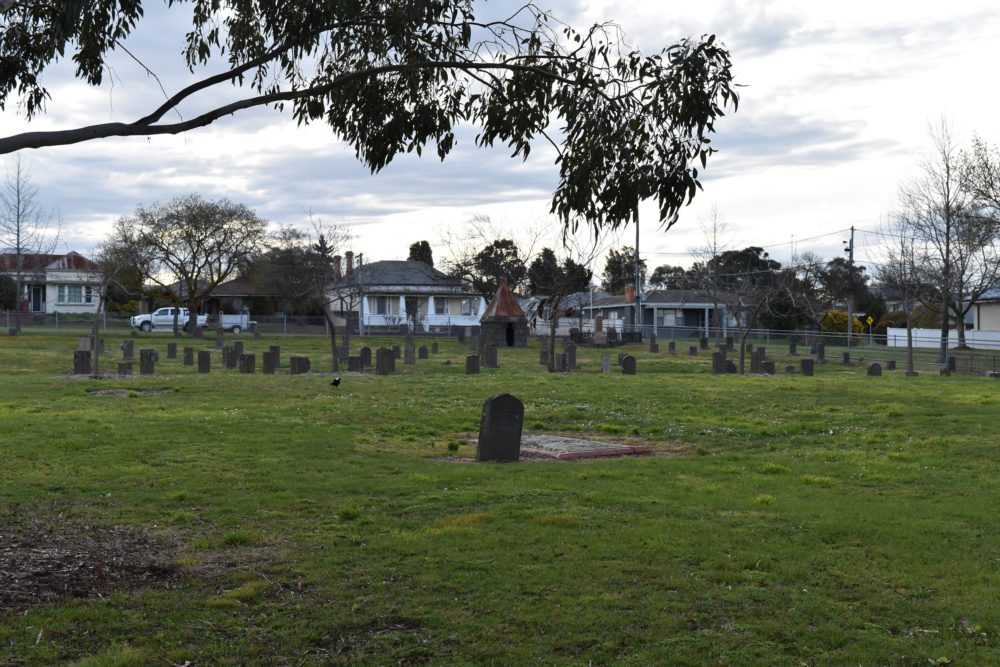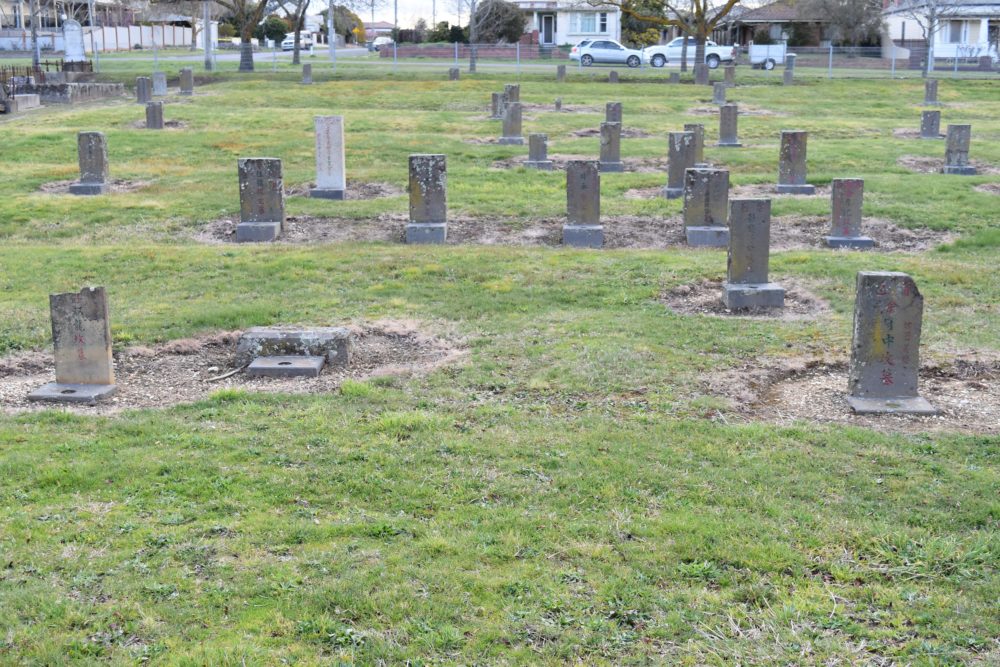Ancestor worship was an important feature of Chinese culture and Confucian religion, being a mechanism of clan ownership of land and permeating the social structure and ideology of ancient China. Most of the Chinese in northeast Tasmania carried on their customs and buried their dead in the traditional manner making only the adjustments required of them by the laws of the land. Whenever possible the bones of the deceased were exhumed and sent back to China to reside in the ancestral burial grounds. It was common practice for those who could afford the journey to return to China to die.
The cemetery contains a memorial erected by the local Chinese community to their dead and a number of Chinese graves. Only one grave bears a headstone engraved with Chinese characters but it is very likely that there are many unmarked Chinese graves in the cemetery.
From “Tasmania’s Chinese Heritage: an historical record of Chinese Sites in North East Tasmania”, by Helen Vivian
